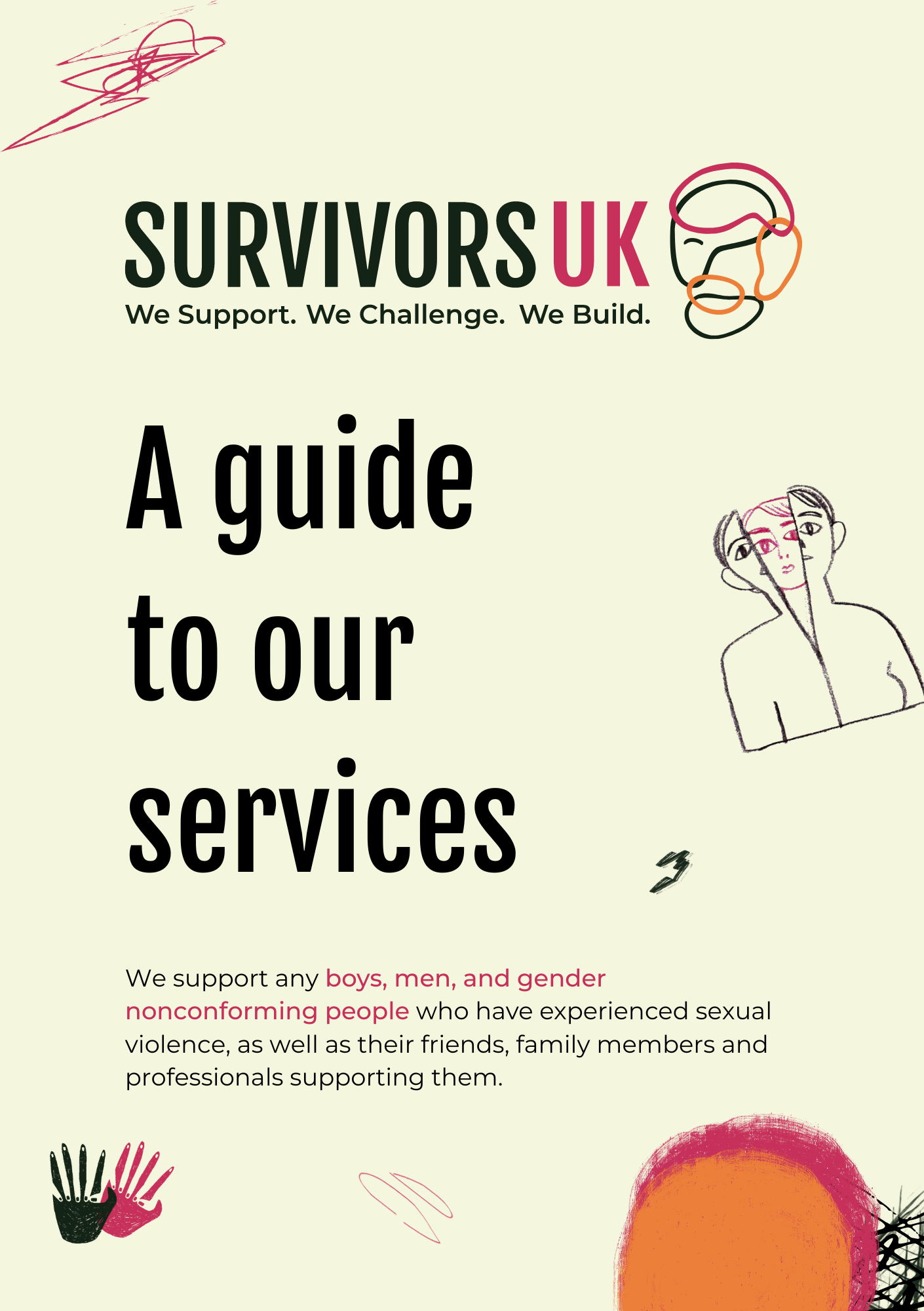
We must overcome gender stereotypes to support survivors
February 1 – 8 is the sexual abuse and sexual violence awareness week. To mark the week, we will post a series of blogs exploring what it means to be a survivor when you’re a man, and how we can all work to better support survivors.
The first blog of the week comes from our support counsellor, Michelle Buckberry, who writes about how gender stereotypes have failed men.
Awareness about sexual violence is not a new thing. Over the last 50 years it has been creeping up the political agenda, increasing understanding and decreasing tolerance whilst simultaneously breaking down barriers to support for those affected.
Of course, for a vast majority of those 50 years, it has been feminists who have campaigning for the rights of female survivors of sexual violence and the Violence Against Women and Girls (VAWG) Network that have been offering support. This work is so very important, but unfortunately, men have been left out of the conversation.
It feels like we’ve begun to tentatively start talking about male survivors in recent years, and in some circles, it still feels taboo.
At this point I feel I should make it clear that I am under no illusion that it is easy for female survivors of sexual violence and abuse – the stigma is still there, along with the victim-blaming and suggestions that accusations of rape stem from feelings of regret or even revenge.
But it’s important to note that men have a whole heap of other barriers to clamber over. First, there is the unhelpful belief that men are the abusers, not the abused, and vice versa for women, which is even more unhelpful for any man who has been abused by “the fairer sex”.
Then there is the assumption that men should be able to fight off a perpetrator, even if they were abused as a little boy. If they are believed, they are then expected to “man up” and “get over it” – showing any hint of vulnerability and expressing the complex mix of emotions that survivors often feel is a no-no if you happen to identify as a man.
Feminists have been challenging established gender roles that shackle women for decades, but maybe it’s time to call into question stereotypes that imprison men as well? By deconstructing unhelpful ideas about masculinity that prevent men from accessing support and leave them isolated with their trauma, we could reduce an awful lot of suffering, harmful behaviours, and life-limiting defence mechanisms – and even begin to address the alarming disproportionate number of men who die from suicide.
As a woman who supports men to overcome the shame and stigma of sexual violence on a day to day basis, I would certainly welcome a rethink.






